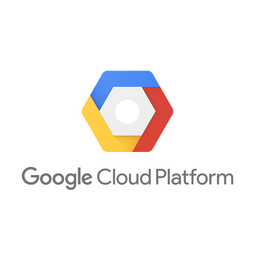Google Analytics helps TV App Agency efficiently produce high-quality data for their connected TV clients

Customer Company Size
SME
Region
- Europe
Country
- United Kingdom
Product
- Google Analytics
Tech Stack
- Google Analytics APIs
- PHP
Implementation Scale
- Enterprise-wide Deployment
Impact Metrics
- Customer Satisfaction
- Brand Awareness
Technology Category
- Analytics & Modeling - Real Time Analytics
Applicable Industries
- Telecommunications
Applicable Functions
- Sales & Marketing
Use Cases
- Real-Time Location System (RTLS)
Services
- Data Science Services
About The Customer
TV App Agency was launched in 2011 to provide expertise across software development, mobile apps, user experience, multi-screen devices, TV app development and app store submission. The agency enables brands, production houses, agencies and broadcasters to get onto connected TV. They have produced apps for connected TV devices including Samsung, LG, Philips and Sharp, and platforms including Google TV, Opera and set-top boxes. The agency uses a cross-platform engine so the apps they develop work on several different TVs, an efficient approach that eliminates the need for native code for each app.
The Challenge
TV App Agency, a pioneer in the development of applications for connected TVs, was facing a critical need to record data on clicks and downloads on apps for connected TV. The emerging platform was facing questions about monetization, and the agency needed to understand what consumers wanted from the apps. They wanted to gain data-led insights into future development. However, there were no existing statistics on what happens after a client downloads these apps. The agency spoke to a host of vendors offering analytics capabilities based on numerous APIs, but found that many were complex and difficult to implement.
The Solution
TV App Agency decided to integrate Google Analytics into their platform. They found that the Google Analytics APIs were easy to implement using the mobile server PHP code. Many of their own customers were already comfortable using Google Analytics, making it a logical choice. The agency opted to use Google Analytics’ server side APIs, which were more easily compatible in the connected TV environment than JavaScript APIs. They used their own in-house knowledge from previous mobile development to come up with a tagging strategy that harnessed exactly the data required. The integration was quick to develop and provided valuable data to their clients. They were able to track which adverts were being played and get an idea of which functions in apps were being used. The real-time reports showed when people were actually using these apps.
Operational Impact
Quantitative Benefit

Case Study missing?
Start adding your own!
Register with your work email and create a new case study profile for your business.
Related Case Studies.

Case Study
Vodafone Hosted On AWS
Vodafone found that traffic for the applications peak during the four-month period when the international cricket season is at its height in Australia. During the 2011/2012 cricket season, 700,000 consumers downloaded the Cricket Live Australia application. Vodafone needed to be able to meet customer demand, but didn’t want to invest in additional resources that would be underutilized during cricket’s off-season.

Case Study
SKT, Construction of Smart Office Environment
SK T-Tower is the headquarters of SK Telecom. Inside the building, different types of mobile devices, such as laptops, smartphones and tablets, are in use, and with the increase in WLAN traffic and the use of quality multimedia data, the volume of wireless data sees an explosive growth. Users want limitless Internet access in various places in addition to designated areas.










